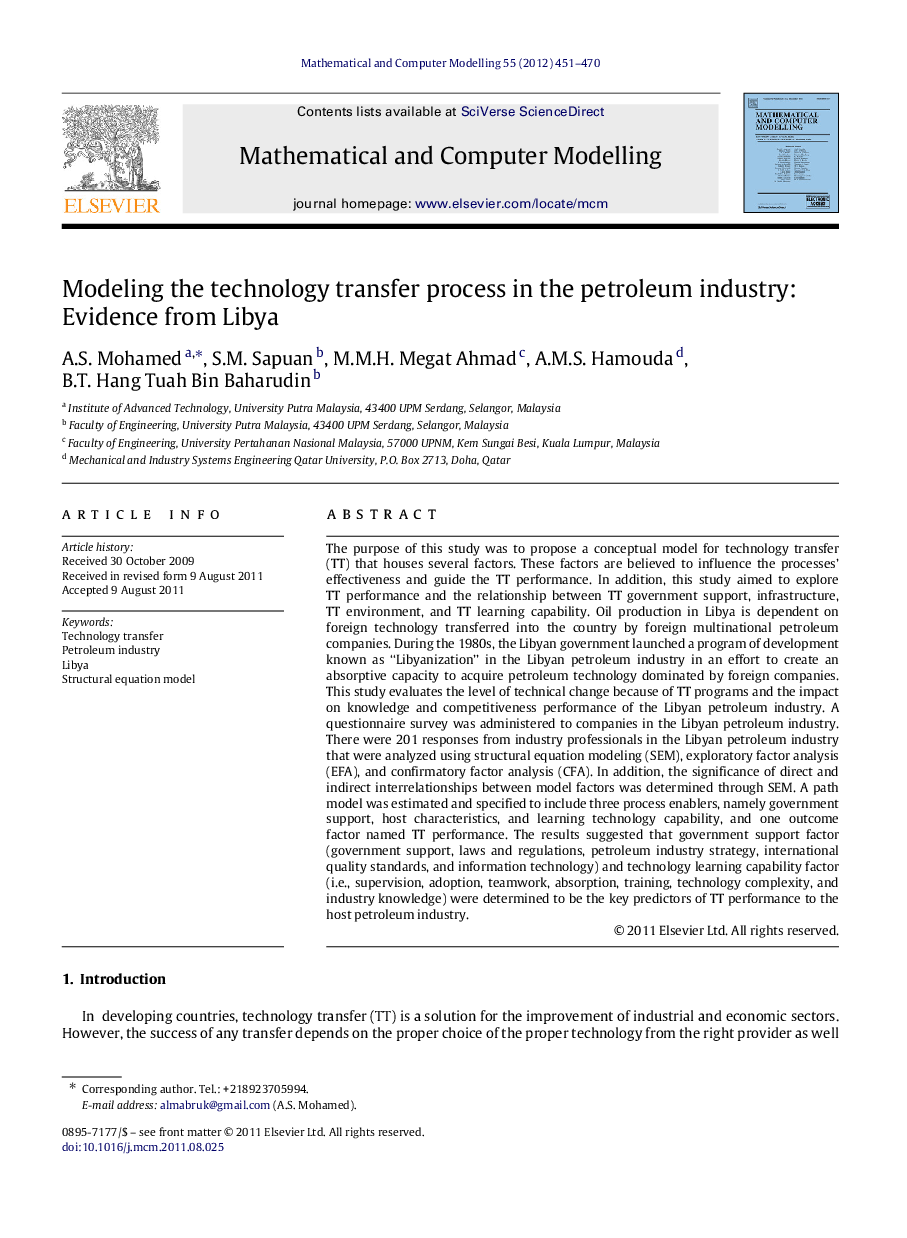| کد مقاله | کد نشریه | سال انتشار | مقاله انگلیسی | نسخه تمام متن |
|---|---|---|---|---|
| 1137002 | 1489149 | 2012 | 20 صفحه PDF | دانلود رایگان |

The purpose of this study was to propose a conceptual model for technology transfer (TT) that houses several factors. These factors are believed to influence the processes’ effectiveness and guide the TT performance. In addition, this study aimed to explore TT performance and the relationship between TT government support, infrastructure, TT environment, and TT learning capability. Oil production in Libya is dependent on foreign technology transferred into the country by foreign multinational petroleum companies. During the 1980s, the Libyan government launched a program of development known as “Libyanization” in the Libyan petroleum industry in an effort to create an absorptive capacity to acquire petroleum technology dominated by foreign companies. This study evaluates the level of technical change because of TT programs and the impact on knowledge and competitiveness performance of the Libyan petroleum industry. A questionnaire survey was administered to companies in the Libyan petroleum industry. There were 201 responses from industry professionals in the Libyan petroleum industry that were analyzed using structural equation modeling (SEM), exploratory factor analysis (EFA), and confirmatory factor analysis (CFA). In addition, the significance of direct and indirect interrelationships between model factors was determined through SEM. A path model was estimated and specified to include three process enablers, namely government support, host characteristics, and learning technology capability, and one outcome factor named TT performance. The results suggested that government support factor (government support, laws and regulations, petroleum industry strategy, international quality standards, and information technology) and technology learning capability factor (i.e., supervision, adoption, teamwork, absorption, training, technology complexity, and industry knowledge) were determined to be the key predictors of TT performance to the host petroleum industry.
Journal: Mathematical and Computer Modelling - Volume 55, Issues 3–4, February 2012, Pages 451–470